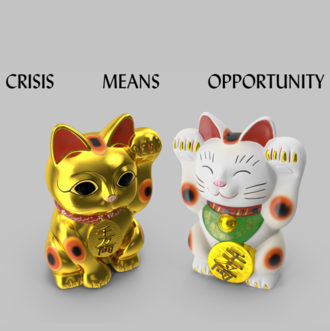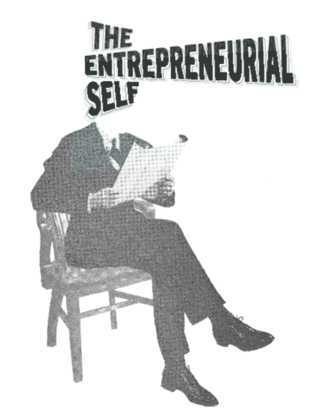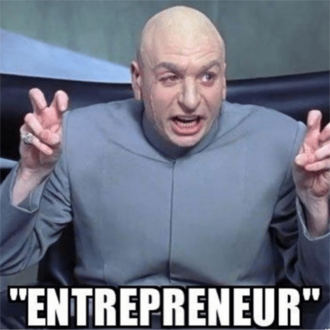User:Artemis gryllaki/Special Issue 7
Start up, Burn out: Life Hacks
Themes, Theory & Research
| Burn Out | Life Hacks | Entrepreneurship | Entreprecariat | ||||||||||
| Precarity | Productiviy | Procrastination | Efficiency | Insecurity | |||||||||
| Flexibility | Labour Rights | Security | Gig Economy | 9-5 | |||||||||
| Alexa | Optimisation | Life Coach | Positive Affirmations | Ever-Working | |||||||||
| Eliza | Hackivism | Hackerspace | Artificial Intelligence | Get Things Done | Siri |

The entreprecariat is the semi-young creative worker who put effort in her own studio while freelancing for Foodora, the manager on the verge of a burnout, the employee who needs to reinvent himself as soon as his short-term contract is over, the fresh graduate who struggles to repay his loan with a top-notch university. As Guy Standing maintains, "the precariat consists of those who feel their lives and identities are made up of disjointed bits, in which they cannot construct a desirable narrative or build a career, combining forms of work and labour, play and leisure in a sustainable way."
Entreprecariats share the urgency to optimize their time, their mind, their body, and their soul in order to deal with precarious conditions, be they financial, psychological, affective, physiological, temporal, geographical. Lifehacker.com well represents this urgency, since it offers optimization techniques encompassing everything, from the work sphere to life as a whole. In the entreprecarious society, everyone is an entrepreneur and nobody is stable.

In his youth, Joseph Schumpeter, an influential Viennese economist, considered entrepreneurs to be a rare species that stands at the top of the social pyramid because of its precious ability to innovate. Starting from similar premises, management guru Peter Drucker argued that to accelerate innovation, society as a whole would have to become entrepreneurial, getting rid of that disincentive to progress that is the permanent job. Drucker’s vision is today a reality: in the face of widespread economic and employment insecurity, Schumpeter’s pyramid has been reversed. Everyone is called to free enterprise. This is the general sense of what we can call, with a dose of irony and bitterness, entreprecariat.
“Fake it till you make it” is an expression that embodies the existential crisis of the entreprecariat. Individuals become an incomplete product in constant optimization that resorts to a conspicuous optimism to present themselves as autonomous to others and to themselves. All this with the risk that, admittedly being the master of their own destiny, the responsibility for their own failures falls only on themselves.
Tachycardia
(60bpm) When you sit, keep your back straight
(65bpm) Then relax and eat your greens
(70bpm) That is it, you're doing great!
(75bpm) Measure your pulse, how is your rate?
(80bpm) Keep on working until it's dark
(85bpm) But break every forty minutes
(90bpm) Go for a jog out in the park
(95bpm) And don't forget to best your mark
(100bpm) Recycle, reuse and abuse
(105bpm) Your prescription for anxiety
(110bpm) Now don't make up an excuse
(115bpm) Finish all that cleansing juice
(120bpm) Leaving all your bills for last?
(125bpm) Your creditor will not approve...
(130bpm) With your ratings dropping fast
(135bpm) Bask in the glory of your past
(140bpm) Is this not set to explode?
(145bpm) Please please please, a helping hand
(150bpm) No credibility to erode?


In Western society there is a drive to orient your thinking and behaviour on the objective of market success which dictates the private and professional spheres. Life is now ruled by competition for power, money, fitness, and youth. The self is driven to constantly improve, change and adapt to a society only capable of producing winners and losers.
The Entrepreneurial Self explores the series of juxtapositions within the self, created by this call for entrepreneurship. Whereas it can expose unknown potential, it also leads to over-challenging. It may strengthen self-confidence but it also exacerbates the feeling of powerlessness. It may set free creativity but it also generates unbounded anger.
Competition is driven by the promise that only the capable will reap success, but no amount of effort can remove the risk of failure. The individual has no choice but to balance out the contradiction between the hope of rising and the fear of decline. Ulrich Bröckling is Professor of Cultural Sociology at the Albert-Ludwigs-University Freiburg, Germany.

Entrepreneurial activity in his view, for instance, is not defined by risk taking. Neither does it involve scientific discoveries or inventing new technologies. Whereas “the inventor produces ideas,” Schumpeter asserts, “the entrepreneur ‘gets things done,’ which may but need not embody anything that is scientifically new.”
Entrepreneurs, he continues, are not managers and most often not owners of the means of production, only ones who have them at their disposal. The essence of entrepreneurship, instead, according to Schumpeter, is to create new combinations among already existing workers, ideas, technologies, resources, and machines. Entrepreneurs, in other words, create new machinic assemblages. Moreover, these assemblages must be dynamic over time. Whereas most capitalists merely pursue “adaptive responses to change,” adjusting their existing arrangements, entrepreneurs carry out “creative responses” that grasp and set in motion what is new in their world.
